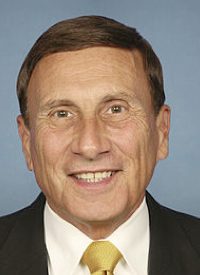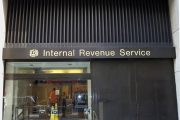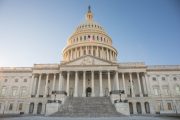
The Orlando Sanford International airport, one of the busiest in the nation, has announced that it will be opting out of using the Transportation Security Administration workers to screen passengers. The announcement is significant as it could lead the charge for other airports in the nation to reduce the more unpleasant aspects of the unpopular federal agency.
“The president of the airport said Tuesday that he would apply again to use private operators to screen passengers, using federal standards and oversight,” reports the Miami Herald.
It was Sanford International airport that originally wanted to opt out of the TSA in 2010 when the TSA prevented airports from being able to use their own private screeners.
However, the United States Senate passed a law last month that forces the TSA to reconsider applications. “Security companies would have an easier time winning contracts to operate airport checkpoints,” reports Businessweek.
The TSA has been slow to respond to the call for new guidelines prompted by the new law. Republican Representatives John Mica (R.-Fla., pictured above), Darrell Issa (R.-Calif.), and Jason Chaffetz (R.-Utah) have called on TSA head John Pistole to quickly implement the new mandate.
“It was the intent of Congress that the Screening Partnership Program be a viable option for airports wishing to opt-out of the all-federal screening model,” wrote Mica in a letter to Pistole. “Airport operators have expressed tremendous interest in the SPP and that expansion beyond the small fraction of the U.S. airports that currently participate in the SPP will allow the TSA to focus on security and oversight activities. It is important that TSA take steps to immediately reopen the SPP, reissue guidelaines in compliance with the law, and begin the process of converting the screening program from its current model of the SPP operations under federal supervision as directed by H.R. 658.”
While H.R. 658 does allow airports to apply for permission to substitute private screeners in place of TSA agents, approval is by no means assured. The leigislation reads, in part:
- (h) Recommendations of Airport Operator- As part of any submission of an application for a private screening company to provide screening services at an airport, the airport operator shall provide to the Under Secretary [of Homeland Security] a recommendation as to which company would best serve the security screening and passenger needs of the airport, along with a statement explaining the basis of the operator’s recommendation.
The legislation also notes that “The Secretary [of Homeland Security] shall approve or deny an application….” With such power, it is evident that while the move to private screeners may provide pasengers with some relief from direct contact with over zealous government agents, the federal government is still in charge.
Mica appeared at the Orlando Sanford International airport and announced that he had already contacted 200 airports across the country advising them that they may opt out of using TSA screeners.
Sanford International president Larry Dale implied that the move towards private screeners was inspired by numerous complaints from travelers. He said that the move will lead to a more “customer friendly” operation.
“It’s the private sector that made this the greatest country in the world,” Dale added.
Articulating similar sentiments, Mica said, “The private sector almost always performs more effectively and efficiently than the federal government, and Congress intended airports to have the option between all-TSA screening and private-federal screening.” (Emphasis added.)
The notion of privatizing airport security was made popular by GOP presidential contender and Texas Congressman Ron Paul. Paul appeared on the Tom Sullivan show last summer and took the opportunity to restate his position on the unconstitutional treatment of Americans at the hands of the Transportation Security Administration (TSA). Congressman Paul also reiterated his belief that the TSA should be replaced by private security forces.
While on the Tom Sullivan show, Congressman Paul called the Transportation Security Administration “invasive, unnecessary, and ineffective.”
The Blaze writes, “[Paul] rejected the underlying premise of the TSA wholesale — that federal bureaucrats will keep us safer than private enterprises with direct interest in the safety (and satisfaction) of their customers.”
Likewise, Paul indicated that those at the TSA who are performing the enhanced pat-downs are not exactly “the most reputable people.” Paul also noted the double-standard in behavior that is somehow considered acceptable when performed by the TSA. “We would be arrested if we did this,” he said.
Following his criticism of the TSA, Paul went on to recommend that airports should opt for private security, since he contends that federal bureaucrats are less qualified to provide intelligent security.
This is not the first time Congressman Paul suggested a transition to private airport security. During the Fourth of July weekend last year, Paul resorted to particularly strong language to emphasize his point and his passion on the subject.
“The press reports are horrifying,” he said. “Ninety-five year old women humiliated, children molested, disabled people abused. Men and women subject to unwarranted groping and touching of their most private areas, and involuntary radiation exposure.”
Paul continued, “If the perpetrators were a gang of criminals, their headquarters would be raided by SWAT teams and armed federal agents. Unfortunately in this case, the perpetrators are armed federal agents.”
As far as privatizing airport security, Paul explains, “What we need is real privatization of security, but not phony privatization with the same TSA screeners in private security firm uniforms still operating under the ‘guidance’ of the federal government. Real security will be achieved when the airlines are once again in charge of protecting their property and their passengers.”
While Paul’s calls for less federal control over airline security were ignored in 2001, the increased outrage over TSA abuses and failures has provoked a great deal of criticism of the agency and has many Americans questioning the need for its services.
The push for private screeners has grown in the last two years particularly after the TSA’s introduction of the “enhanced pat downs,” which includes touching of the genitalia. A November 2010 poll found that 57 percent of adult fliers were angered by the pat downs.
Likewise, TSA screeners have been accused of criminal activity. TSA agent Alexandra Schmid, for example, stole $5,000 in cash from the jacket of a passenger at the John F. Kennedy International Airport in New York.
Others have argued that private screeners would simply provide better customer service.
“Some airport executives have argued that contract security personnel are more courteous than government workers,” reports CNN. “It was felt that a private contractor would provide friendlier customer service to the traveling public,” the head of a Roswell, New Mexico, airport wrote to Congress.”
The TSA has undergone some embarrassment recently after engineer Jon Corbett proved that the x-ray body scanners were inefficient in detecting potentially dangerous items. He released a video that shows Jon Corbett carrying through the scanner a metal case that is away from his body in his side pocket. In the video, Corbett explains that the metallic objects appear as black on the image produced by the scanners, and therefore, the machines are unable to detect such objects if they are obscured by the background, which is black as well.
“The scanners are now effectively worthless, as anyone can beat them with virtually no effort.” Corbett writes on his blog. “The TSA has been provided this video in advance of it being made public to give them an opportunity to turn off the scanners and revert to the metal detectors. I personally believe they now have no choice but to turn them off.” he adds.
Still, efforts to outlaw the invasive procedures of the TSA were met with harsh opposition. Texas lawmakers attempted to pass a bill last year that would have totally outlawed the pat downs, but were faced by threats from the federal government to impose a de facto “no fly zone” over the state if the bill passed.
With the new law passed, however, sixteen of the nation’s airports have already opted out of using TSA agents, including West Yellowstone Airport in Montana has already replaced TSA screeners with private ones. Bert Mooney Airport, also in Montana, is expected to follow suit.




